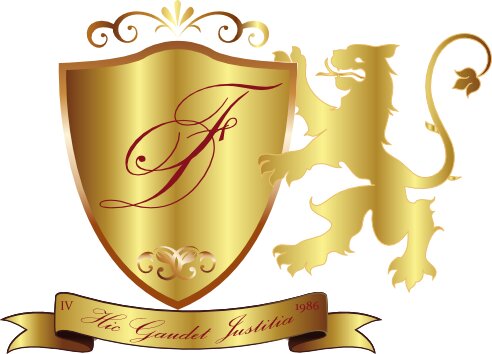Best Hiring & Firing Lawyers in Turin
Share your needs with us, get contacted by law firms.
Free. Takes 2 min.
List of the best lawyers in Turin, Italy
About Hiring & Firing Law in Turin, Italy
Hiring and firing employees in Turin, Italy, is governed by Italian national labor law, which seeks to balance business flexibility with strong employee protection. The legal framework covers contracts, wages, dismissals, and dispute resolution and is enforced both locally and nationally. Turin, as a major industrial and commercial center, reflects national employment trends while also responding to the specific needs of its diverse business landscape.
Why You May Need a Lawyer
A lawyer with experience in hiring and firing can help navigate the complexities of Italian labor law, which can be challenging for both employers and employees. Common situations where legal assistance is essential include:
- Drafting or reviewing employment contracts to ensure compliance with Italian labor regulations
- Managing disciplinary procedures or allegations of misconduct
- Implementing redundancies or mass layoffs and understanding collective dismissal procedures
- Disputes over unjust or wrongful termination
- Negotiating settlements or severance agreements
- Ensuring fair and legal procedures in both hiring and firing to avoid costly litigation
- Understanding employee rights concerning maternity leave, disability, or protected categories
- Handling cross-border hiring or international employment issues
- Responding to inspections, audits, or actions by trade unions or regulatory authorities
Local Laws Overview
Italian labor law is centralized, but local nuances in Turin may arise due to regional labor agreements, trade union strength, and industry practices. Key laws and regulations include:
- Employment Contracts: Must adhere to legal forms (open-ended, fixed-term, apprentice, etc.) and include required information. Collective Bargaining Agreements (CCNL) are commonly used.
- Probation Periods: Typically, up to 6 months for most roles.
- Termination Procedures: Employers must provide clear reasons for dismissal, follow due process, and may owe severance or notice periods. Unjustified dismissals can lead to reinstatement or compensation.
- Redundancy and Collective Dismissals: Specific procedures and notice requirements apply for multiple dismissals, often involving unions and labor offices.
- Protected Groups: Special protections for pregnant women, employees on parental leave, disabled workers, and trade union representatives.
- Controversy Resolution: Labor courts in Turin handle disputes, with possibilities for conciliation or mediation before litigation.
- Hiring Foreign Workers: Includes obtaining work permits where necessary and complying with immigration rules.
Frequently Asked Questions
What types of employment contracts can companies use in Turin?
Employers in Turin can use open-ended (permanent), fixed-term, apprenticeship, and part-time contracts. Each type has distinct requirements and termination procedures, often defined further by collective agreements.
Is it legal to terminate an employee without a specific cause?
In Italy, dismissals generally require a justified objective or subjective reason. Dismissal without cause is unlawful and exposes an employer to reinstatement or compensation claims.
How much notice is required before firing an employee?
Notice periods depend on the employment contract, collective agreements, and the employee’s seniority. Exceptions apply in case of gross misconduct (just cause dismissal), where notice may not be required.
What are the consequences of unfair dismissal?
If a dismissal is found to be unjustified, the employee can be entitled to reinstatement or compensation, including lost wages and social contributions, depending on the situation and seniority.
When do collective dismissal rules apply?
Collective dismissal procedures apply when a company with more than 15 employees dismisses at least five employees within 120 days in the same production unit or municipality. Special procedures and negotiations with unions are required.
Are special rules in place for hiring or firing foreign nationals?
Yes, hiring non-EU workers requires compliance with immigration law, including work permits. Firing must also observe contract and legal protections; discrimination based on nationality is prohibited.
What obligations do employers have regarding workplace discrimination?
Employers must ensure equal treatment and opportunity. Discrimination based on gender, age, disability, ethnicity, religion, or other protected grounds is strictly prohibited by law and can result in significant penalties.
Can an employee in Turin challenge their termination?
Yes, an employee who believes they were unjustly terminated can file a complaint with the labor court (Tribunale del Lavoro) in Turin, often following an attempt at conciliation.
Are probation periods mandatory?
Probation periods are not mandatory unless specified in the contract but are commonly used. Their maximum length is typically stipulated by law or collective agreements.
What is a Collective Bargaining Agreement (CCNL), and does it apply in Turin?
A CCNL is a negotiated agreement between employers and trade unions defining employment terms and conditions in particular sectors. They are widely used in Turin, and often set higher standards than minimum legal requirements.
Additional Resources
For more information and support on hiring and firing in Turin, consider exploring the following organizations and resources:
- Ispettorato Nazionale del Lavoro (INL): The National Labor Inspectorate, enforcing labor regulations.
- Centro per l'Impiego: Local job centers offering resources on employment rights and listings.
- Trade Unions (CGIL, CISL, UIL): Offer advice and assistance to employees regarding workplace rights.
- Ordine degli Avvocati di Torino: Turin Bar Association, providing lists of specialized employment lawyers.
- Camera di Commercio di Torino: The Turin Chamber of Commerce, advising on business and employment regulations.
Next Steps
If you need legal help with a hiring or firing issue in Turin, Italy, consider the following steps:
- Gather all relevant documents, such as contracts, correspondence, payslips, and notices.
- Make a written summary of the situation, including dates and key events.
- Contact a specialized employment lawyer or the Turin Bar Association for a referral.
- Reach out to local trade unions for employee-side advice or support.
- Consult the National Labor Inspectorate if you suspect labor law violations.
- For initial guidance, visit a local job center (Centro per l'Impiego).
Lawzana helps you find the best lawyers and law firms in Turin through a curated and pre-screened list of qualified legal professionals. Our platform offers rankings and detailed profiles of attorneys and law firms, allowing you to compare based on practice areas, including Hiring & Firing, experience, and client feedback.
Each profile includes a description of the firm's areas of practice, client reviews, team members and partners, year of establishment, spoken languages, office locations, contact information, social media presence, and any published articles or resources. Most firms on our platform speak English and are experienced in both local and international legal matters.
Get a quote from top-rated law firms in Turin, Italy — quickly, securely, and without unnecessary hassle.
Disclaimer:
The information provided on this page is for general informational purposes only and does not constitute legal advice. While we strive to ensure the accuracy and relevance of the content, legal information may change over time, and interpretations of the law can vary. You should always consult with a qualified legal professional for advice specific to your situation.
We disclaim all liability for actions taken or not taken based on the content of this page. If you believe any information is incorrect or outdated, please contact us, and we will review and update it where appropriate.












